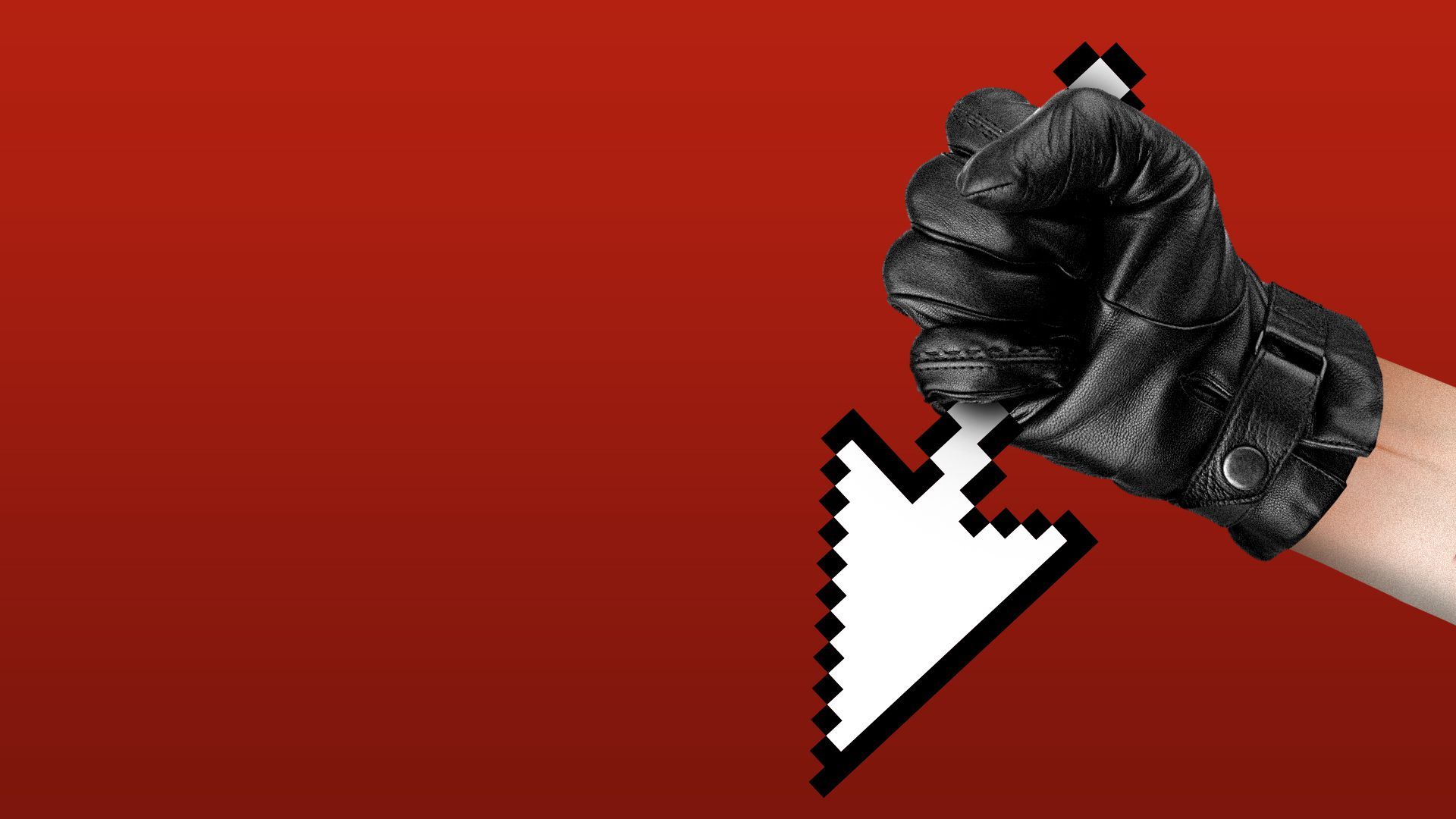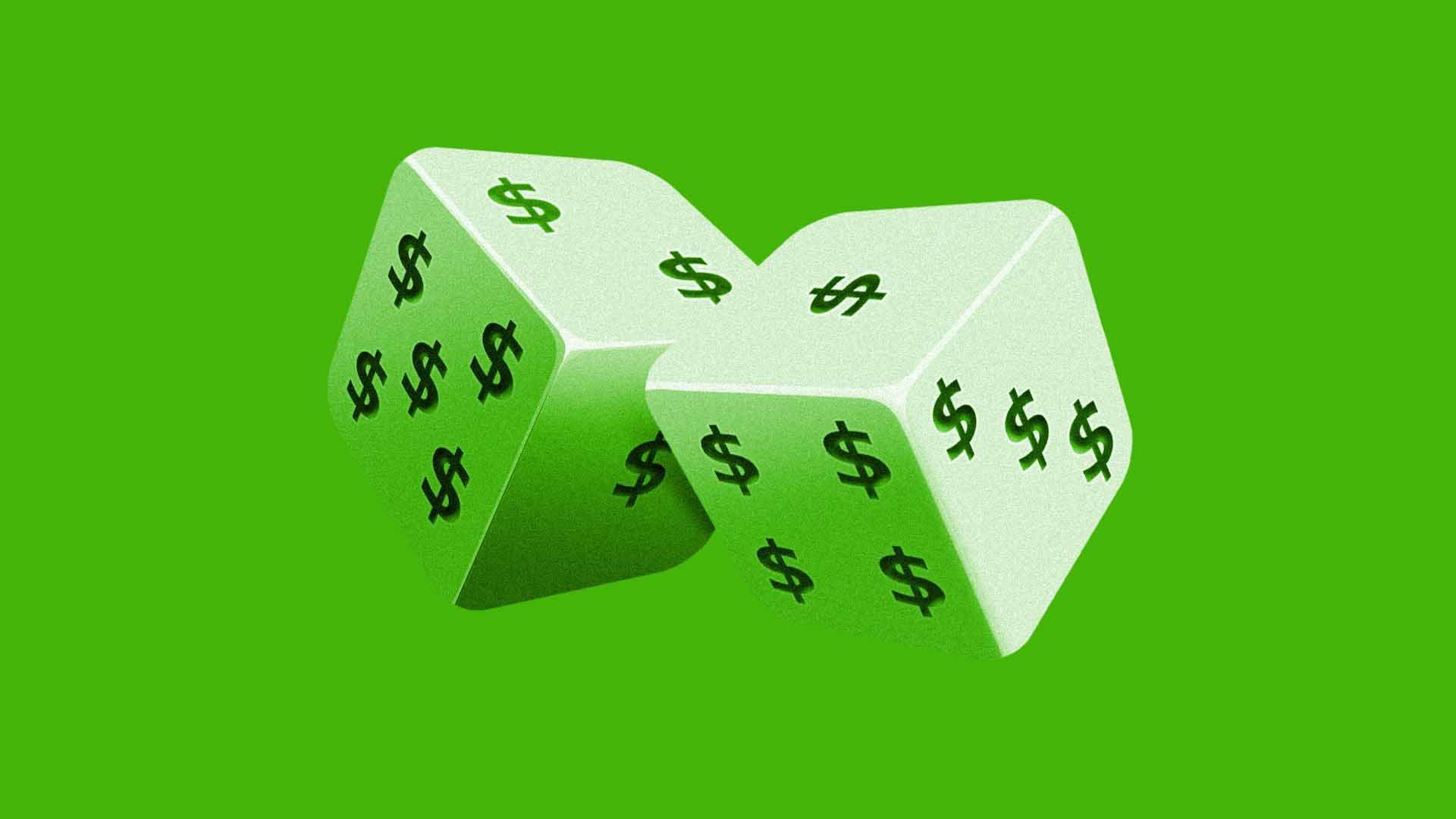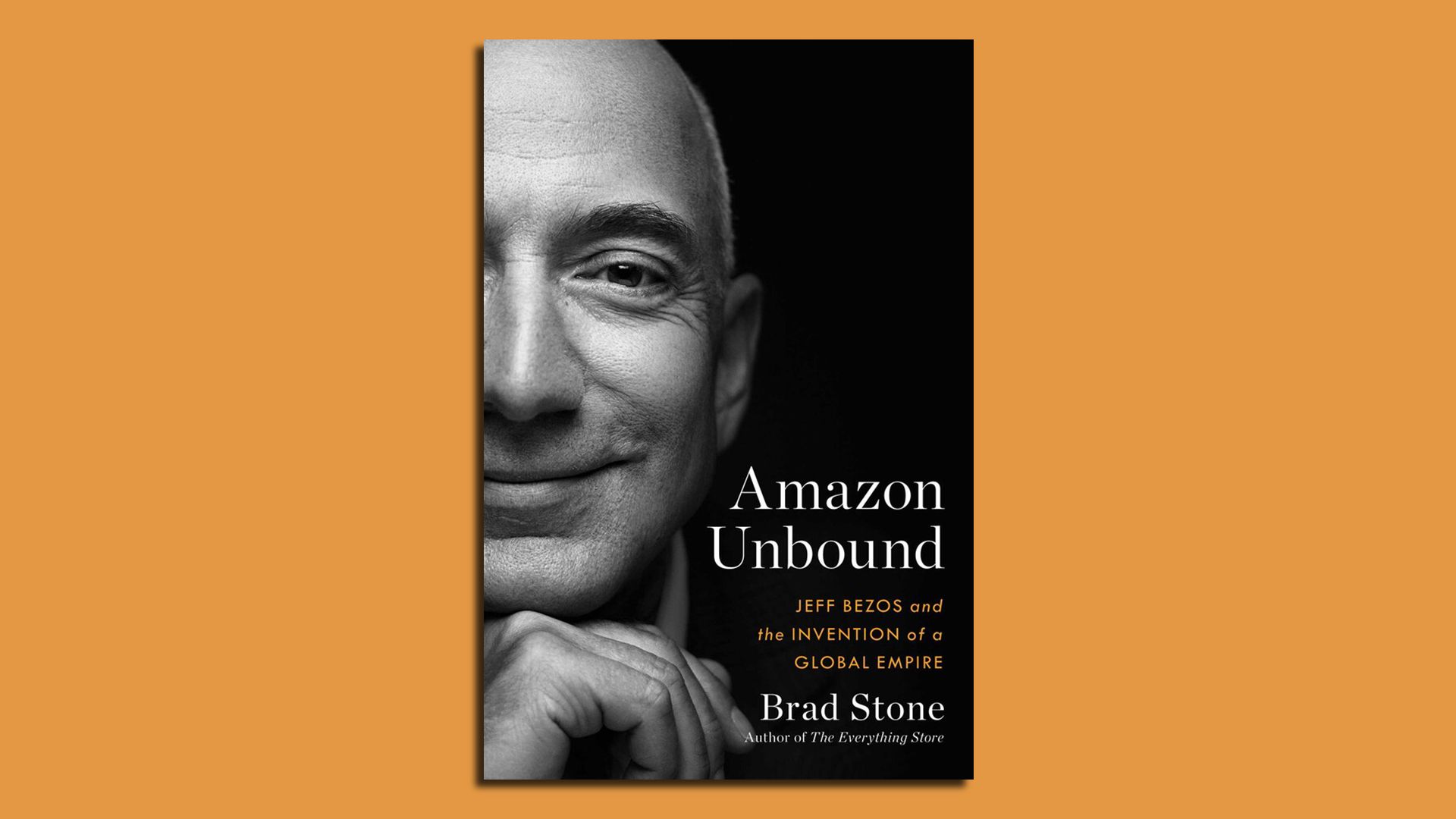| | | | | | | Presented By ProEdge, a PwC Product | | | | Axios Markets | | By Aja Whitaker-Moore ·May 11, 2021 | | Welcome back! Happy Tuesday to my Markets tribe. Situational awareness: Tech stocks are under pressure again today, with futures falling on inflation worries. If this email was forwarded to you, sign up here. Today's newsletter is 1,322 words, and a 5-minute read. | | | | | | 1 big thing: The ransomware pandemic |  | | | Illustration: Aïda Amer/Axios | | | | "We are on the cusp of a global pandemic," said Christopher Krebs, the first director of the Cybersecurity and Infrastructure Security Agency, in congressional testimony last week. - The virus causing the pandemic isn't biological, however. It's software, Axios' chief financial correspondent Felix Salmon writes.
Why it matters: Crippling a major U.S. oil pipeline this weekend initially looked like an act of war — but it's now looking like an increasingly normal crime, bought off the shelf from a "ransomware as a service" provider known as DarkSide. Driving the news: Colonial Pipeline runs the largest refined products pipeline in the country, transporting more than 100 million gallons per day. It was shut down on Sunday in response to a ransomware attack, and it will be reopened in "an incremental process" this week, per a statement. - That's faster than the market expected — energy prices fell following the statement, after initially rising on the shutdown news.
The big picture: No company is safe from ransomware, and often the lines between criminals and state actors can be fuzzy. Preventing even bigger future attacks will require a so-far elusive degree of coordination between the public and private sectors in dozens, if not hundreds, of countries. - Threat level: Very high. "Cybersecurity will be the issue of this decade in terms of how much worse it is going to get," IBM CEO Arvind Krishna told reporters Monday.
- Currently, per Forrester analyst Allie Mellen, companies' main strategy is to pay up if hit — and to try to be slightly less vulnerable to attack than their competitors. "What do security pros do right now to lower their risk in the face of future ransomware attacks? Outrun the guy next to you," Mellen says.
Between the lines: Colonial Pipeline was lucky that it is so important to the American economy. Its systemic status helped to mobilize the full resources of the U.S. government, and even elicited an apology, of sorts, from DarkSide. What they're saying: "There is no silver bullet for solving this challenge," concludes a major report on combating ransomware from the Institute for Security and Technology. - "No single entity alone has the requisite resources, skills, capabilities, or authorities to significantly constrain this global criminal enterprise."
The bottom line: The Colonial Pipeline attack was so big that it couldn't help but make headlines. But most attacks are quietly paid off with no fanfare and no publicity, making it extremely difficult to gauge the true scale of the problem. Go deeper. |     | | | | | | 2. Catch up quick | | Households now expect inflation levels to reach 3.4% by next year, according to the New York Fed's April consumer survey. That's 20 basis points higher than results in March. Meanwhile, the view for income is slightly bleaker — up 2.4% by next year, versus the 2.8% growth prediction from March. (WSJ) Mortgage lenders are expecting refinancing demand to decline as interest rates rise. At the start of the year, 30-year rates reached a record low of 2.65% but have inched near 2.97%. (WSJ) Affirm, the buy-now-pay-later financing company, reported revenue from Peloton is now 18% of its gross merchandise value, down from 25% a year ago. Affirm also revealed a $3.5 million revenue reduction for the quarter in anticipation of the financial impact of Peloton's voluntary treadmill recall. (Affirm) |     | | | | | | 3. Hedge funds find new favorite short |  | | | Illustration: Sarah Grillo/Axios | | | | In the post-GameStop world, shorting equities is still too risky for many hedge fund managers, writes Axios' business editor Kate Marino. Why it matters: With the equity market too buoyant to bet against, investors have turned to the high yield bond market for shorts, with a view that prices there are also inflated. Details: About $55 billion of global high yield bonds have been sold short, up from $35 billion at the beginning of the year, Bloomberg reports. That's the biggest short position in high yield since 2008. - "The scary part of that trade is that it's expensive to short cash bonds," a hedge fund manager tells Axios.
- To short a bond, the investor has to pay to borrow it — as well as pay the semi-annual coupon payments as they come due.
- The upside is also limited since bonds are unlikely to plummet dramatically over a short time, unless they are tied to distressed companies (and often not even then).
Be smart: Shorting high yield is more frequently a view on the market overall. - High yield bonds are at toppy valuations. The ICE BofA high yield index now yields 4.2%, and it's sat at record lows in the low-4% area since February.
- Investors shorting high yield are positioning themselves for a potential scaling back of central bank support, Bloomberg says.
Meanwhile, in the equity market, the median short interest in S&P 500 companies is near a 17-year low. |     | | | | | | A message from ProEdge, a PwC Product | | Align skills and culture with the changing nature of work | | |  | | | | Readying the enterprise for the future typically includes investment in new technologies. But it also requires ensuring your organization has the right skills to make the most of these technologies. Read the guide from ProEdge, a PwC Product. | | | | | | 4. Soaring crop prices set off inflation fears |  S&P Global Market Intelligence; Chart: Danielle Alberti/Axios Crop prices like corn, wheat and soybeans have hit highs not seen in almost a decade. And they're likely to stay that way for a while, sparking jitters over food inflation, Kate writes. Why it matters: Higher prices are a boon for farmers following years in the doldrums — and after supply chain chaos early in the pandemic. But they will bleed through to consumers at the grocery store and in restaurants. - "We believe we are only in the early innings of a multi-year upcycle for the global agricultural economy. This is due to a combination of supply shocks that has left crop inventories quite lean," analysts at Putnam Investments wrote in a recent research note.
The backstory: China has soaked up a huge amount of U.S. corn and soybeans since the end of the trade war. It purchased more corn from the U.S. in 2020 than in any year since 2006 — and it's on pace to exceed that amount in 2021, the Putnam analysts write. - China also bought more soy from the U.S. than it has since 2016.
- Bad crop weather in key agricultural areas in recent years has contracted supply, Bloomberg reports.
- Demand for renewable fuels is growing as the economy reopens, the WSJ notes. Corn is used in ethanol, and soybeans are a feedstock for renewable diesel.
What they're saying: "We are getting close to the point of having to ration demand. Farmers are either running out of crops to sell or waiting for the market to go even higher," Jacqueline Holland, an analyst at Farm Futures, told Bloomberg. What's next: The soaring prices will pressure margins for packaged food companies and grocery stores. - Already, Hormel, J.M. Smucker and Tyson Foods have raised prices, and others are likely to do the same.
|     | | | | | | 5. What we're reading: Amazon edition |  | | | (Image: Simon and Schuster) | | | | Axios' Hope King writes: Loyalty to Amazon above all else is partly what propelled Dave Clark to become the company's retail CEO, according to a new book on Amazon and its founder. "Amazon Unbound" by Bloomberg journalist Brad Stone devotes a full chapter to the origin story of Amazon's delivery and logistics network, which Clark has helped build since the early 2000s. The big picture: Earlier this year, Clark replaced Jeff Bezos' longtime second in command, Jeff Wilke, to run global retail and supply chain related businesses at Amazon. - Amazon's logistics enterprise is expected to grow substantially over the next five years, with one analyst saying the company wants its delivery network to reach every corner of the U.S. by then.
- In pursuit of delivering the fastest shipping experience for customers — and with Clark at the helm in his previous role as head of global operations — Amazon has expanded into leasing 85 aircraft, launching fleets of independently operated delivery vans, opening hundreds of new "delivery stations," as well as making key acquisitions such as Kiva, the warehouse robotics company.
Book details: With "a temper that flared when employees didn't carefully follow his instructions," Clark earned a nickname — "the Sniper." - He ended a 15-year-friendship with a colleague who was the best man at his wedding, Arthur Valdez, after Valdez left Amazon to work for Target, and Amazon sued Valdez for breaching his noncompete agreement.
- "Clark had proven himself a true Amazonian, putting loyalty to the company above personal friendship while pursuing Bezos's vision of an independent supply chain," Stone writes of the incident.
We've seen this ethos before, especially when it comes to founder-led, high-growth tech companies. - Netflix's CEO Reed Hastings has admitted to running a tough culture, and his leadership style has been described as "unencumbered by emotion."
- The late Steve Jobs was also infamous for some of the ways he treated his employees and even his own family.
Axios contacted Amazon for comment, but did not hear back. |     | | | | | | A message from ProEdge, a PwC Product | | Align skills and culture with the changing nature of work | | |  | | | | Readying the enterprise for the future typically includes investment in new technologies. But it also requires ensuring your organization has the right skills to make the most of these technologies. Read the guide from ProEdge, a PwC Product. | | | | Thanks for reading! Send me any tips or feedback to aja.moore@axios.com or hit me up on Twitter @AjaWMoore. | | | | Axios thanks our partners for supporting our newsletters.
Sponsorship has no influence on editorial content. Axios, 3100 Clarendon Blvd, Suite 1300, Arlington VA 22201 | | | You received this email because you signed up for newsletters from Axios.
Change your preferences or unsubscribe here. | | | Was this email forwarded to you?
Sign up now to get Axios in your inbox. | | | | Follow Axios on social media:    | | | | | |







No comments:
Post a Comment